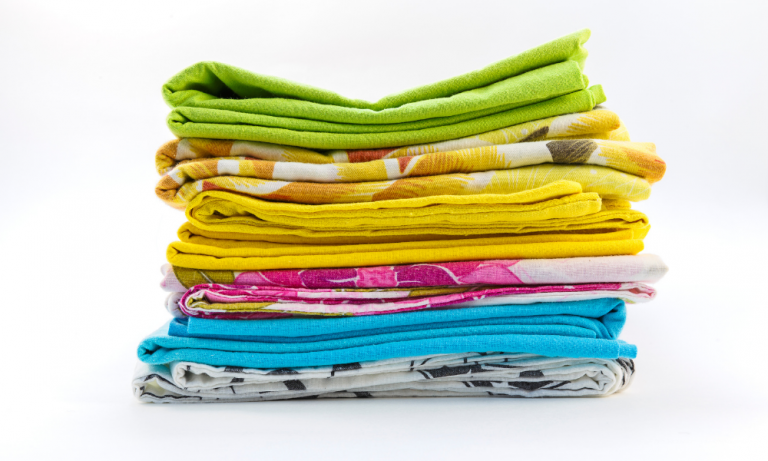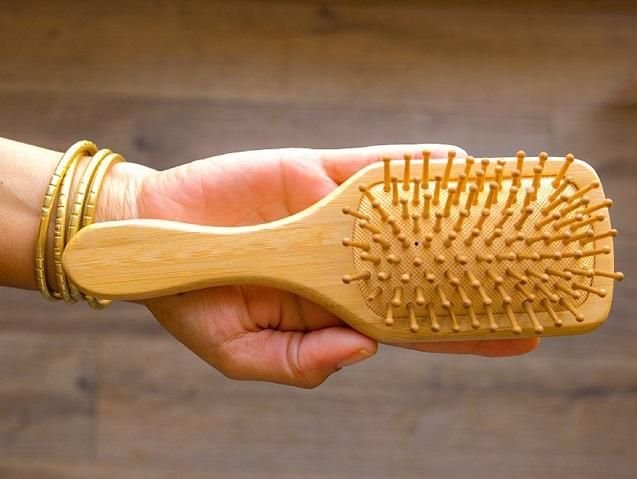How Long do Bamboo Toothbrushes Last? See Here!

0Shares
With plastic pollution rising, toothbrushes made of bamboo have become the mainstay for oral health. After all, what other material can create a sturdy and efficient handle for easy brushing? But as efficient as they are, they’re vulnerable to decomposition. So, how long do bamboo toothbrushes last?
A regular wooden toothbrush can last between 3 and 4 months at most. Although you can go beyond that, it might affect your health as bacterial growth is inevitable. Moreover, bamboo brushes tend to harbor mold over time. But you can make the most of them by reusing or composting them.
Read on to learn more about bamboo toothbrushes’ lifespans and the best ways to reuse or dispose of them.
What is a Bamboo Toothbrush?

A bamboo toothbrush resembles any other manual brush at the store. The main difference between it and its synthetic counterparts is the materials used for the handle. Bamboo offers a more durable grip and better environmental contributions.
As fresh and new bamboo toothbrushes may seem, they’re not. They’re among the oldest kinds of brushes available, with the earliest one dating back to the 15th century. Hailing from china, they use boar hair bristles and pure bamboo handles.
Although you’ll likely find nylon bristles on your dental brushes made of bamboo, a few can still contain boar hair. Meanwhile, others also come with activated charcoal, promoting better teeth-whitening results.
How Long Do Bamboo Toothbrushes Last?

Depending on how you care for them, a bamboo toothbrush can last you between 3 and 4 months. It will last less time than its plastic counterparts since it contains organic materials. And this makes it more vulnerable to bacterial and fungal growth — encouraging faster decomposition.
Unlike their impenetrable synthetic counterparts, bamboo toothbrushes decay fast! So, you must be more careful when using these brushes and remember to store them after each use properly. Avoid tossing it in its container while damp, and always ensure the bristles are 100% dry!
Regardless, the better you care for the bamboo handle, the longer the toothbrush lasts. But it’s better to follow the dentist’s recommended move of replacing it once every three months.
Although they’re quick to decompose, bamboo toothbrushes have their fair share of benefits. And these include the following:
They’re Eco-Friendly
Based on the current problematic trends, plastic waste will likely end up in our oceans. And this places marine life in danger, disrupting the ecosystem! Each time you chuck your used toothbrushes into the bin, there’s a high chance they’ll get eaten by marine life.
Bamboo toothbrushes are eco-friendly alternatives that keep you smiling brightly without harming your surroundings. You can compost their handles, allowing them to degrade naturally. And if you want, you may also recycle or reuse them.
Better Sustainability
Since bamboos are organic, manufacturers can repeatedly cultivate them without hurting the environment. And best of all, this organic material grows fast with little assistance and maintenance. Bamboo doesn’t need fertilizer or pesticides to grow, unlike other plants.
With this, you don’t need to worry about production affecting the environment, allowing you to brush your teeth confidently.
Safe to Use
Bamboos are plants that naturally grow and are safe for use. And manufacturers use to cut their stems and process them without using harmful additives.
What are the Best Ways to Reuse a Toothbrush Made of Bamboo?
Get the most out of your brushes and discover the best ways to reuse them, such as the following:
Turn it Into a Garden Tool
You can use your bamboo toothbrush as a plant or seed marker for better growth. It’ll help hold your plants up, allowing them to grow straighter and taller. After all, it’s small enough to squeeze within your potted plants or a small garden.
But remember to remove the bristles before you turn them into a garden tool! After all, these don’t decompose well, harming your plants over time. So, pluck them out before sticking them into the soil.
Use the Toothbrush to Clean Hard-to-Reach Areas
Use your old brush if you struggle to clean your home’s nooks and crannies. You can use the former toothbrush and scrub between these gaps and crevices. And thanks to its thin bristles, you don’t have to worry about missing a spot again!
Also, you can use it to remove excess food debris from your kitchen utensils, like a cheese grater.
Use it for Arts and Crafts
Reusing bamboo toothbrushes for arts and crafts is an underrated yet efficient alternative! You can use it for projects like collages or wooden picture frames. But remember to pluck out the bristles for a cleaner output.
Scrub Off Stains Like a Pro
Perform better stain removal by reusing your old bamboo toothbrush. It’s an excellent way to work on nasty stains on your clothing, as it lets you apply more concentrated force. With this, you can work on the specific problem areas of each garment without ruining it.
Use your old brush to remove tough stains like dried mud and blood alongside the proper cleaning agent for fast results.
Keyboard Cleaning
What better way to clean your keyboard than scrubbing it with a thin-bristled toothbrush? If you’ve ever eaten near your computer or laptop, you’d know how to remove crumbs from your keyboard.
Cleaning in and around the keys is challenging without the proper tool. And here’s where your old brush will come to save the day! Its thin bristles will help you reach those hard-to-reach nooks, ensuring a crumb-free keyboard.
All it’ll take is a soft brush stroke, giving you a clean, debris-free keyboard. But remember not to press the former toothbrush forcefully as it may damage the gadget.
Double it as Grooming Tool for Your Pet
Old toothbrushes make for excellent grooming tools for your pet. It’s a perfect way to brush your furry friend’s hair without harming its skin. And though it won’t be as efficient as an actual brush for animals, it’ll still offer some satisfaction.
Recycle it for Your Fireplace, Pit, or Furnace Fuel
Save yourself from getting firewood by recycling your old bamboo toothbrushes. You can chuck them into your fireplace, furnace, or pit to create a cozy fire. Although it won’t be as efficient as regular firewood, it’ll still give you decent heat and warmth.
Again, remember to remove the bristles to avoid polluting your surrounding air.
Compost the Old Toothbrushes
If you do regular home composting or bring your leftovers to local composters, you can do the same for your old bamboo brush. It can decompose in between 3 and 4 months, which is way faster than the 1000 years plastic toothbrushes take to break down.
Once you remove the bristles from your old toothbrush, place them into a plastic recycle bin and compost the handle.
How to Dispose of Bamboo Toothbrushes?
Although some bamboo toothbrushes can last up to 6 months, it’s better to stick to the dentist’s recommendation of replacing them once every three months. It doesn’t matter if we’re talking about one made of bamboo, as toothbrush bristles wear down fast! And it encourages quick bacterial build-up, regardless of the handle material.
So, when replacing your old bamboo toothbrush, knowing how to dispose of it properly is vital for the environment.
Step 1: Reduce Waste and Upcycle the Worn-Out Brush

Once your bamboo toothbrush has served your teeth for a while, you can squeeze more out of it by upcycling it. You can remove hidden bacteria or mold by boiling the entire thing in hot water for a few minutes. It’ll help sanitize the dental essential and mark it to let you know it’s not for your molars anymore.
Before you remove the bristles, here are excellent ways to get the most use out of your old brush:
- Work on electrical items. Use a fully dry toothbrush to scrub dust between keys on your keyboard. Or you can use it to remove debris from hairdryer vents or vacuum cleaner filters.
- Kitchen-duty. Certain kitchen items like a cheese grater can be a pain to clean, leaving you with stuck food that’s impossible to remove. You can address this using your old toothbrush to scrub the excess food debris.
- Clean sports equipment. Combat dried mud and other tough stains accumulated via any physical sport with your old bamboo toothbrush.
- Bathroom cleaning. You can use the old dental brush to clean hard-to-reach areas in your restroom, including between floor tiles, inside the plug hole, or on your toilet’s brims.
- Use as a plant or seed marker. Please write the name of the plants on your old bamboo toothbrushes and push them into the soil.
Step 2: Remove the Toothbrush’s Bristles
Once you’ve finally worn down your bamboo toothbrush beyond hygiene use, it’s time to remove its bristles. It’s crucial to remove this before you compost the organic handle, as they’re non-biodegradable. And here are two ways for you to them:
- Pull the bristles off with tweezers or pliers
- Snap the entire brush’s head off the handle
The former is the easiest way to deal with the bristles, leaving nothing but a clean slate! Using tweezers or pliers, pull them off alongside the tiny metal staples. And once off, you can go into your plastic recycling to reduce your waste.
I recommend placing the plastic bristle inside other plastic trash as they can scatter quickly.
Step 3: Compost the Handle

Although a bamboo toothbrush’s handle is 100% biodegradable, it doesn’t mean you can chuck it in your trash. You must dispose of the dental product properly to ensure it breaks down quickly. Place the handle in your bio-waste bin to let your local composter work on it, allowing for fast decomposition.
But if you have a compost bin in your kitchen or garden, you can chuck your wooden toothbrush handle there instead. And even if you make the mistake of throwing away the bamboo handle in your regular trash, it’ll decompose faster than its plastic counterparts.
After all, bamboo breaks down over time, often faster during warmer and wetter climates.
Frequently Asked Questions
Q: Is using a bamboo toothbrush unhygienic?
A: With their porous material, bamboo toothbrushes tend to harbor bacteria. And with this, they can become unhygienic with prolonged use. But there’s no reason to panic if you clean the bristles daily and don’t spot mold growth.
Q: How long do bamboo toothbrushes last with continual use?
A: With everyday use, your toothbrush consisting of bamboo materials can last between 3 and 4 months. Meanwhile, if you leave it alone, it’ll naturally degrade, lasting up to 6 months! But if you chuck it in soil, it’ll take 5 to 10 years before the brush breaks down.
Q: What’s the most efficient to disinfect a wooden bamboo toothbrush?
A: You can soak your bamboo brushes in a commercial cleaning solution daily. Or you can create a natural disinfectant at home to combat bacteria and mold by combining vinegar, baking soda, and water. Never store your toothbrush when damp, as it can encourage mold growth.
Q: What’s the most foolproof way to throw away a bamboo dental brush?
A: Generally, it’s best to chuck your bamboo toothbrush in the bin after three months. But if you spot mold growth or anything unusual about the toothbrush, it’s time to throw it away ASAP. If not, encourage bacterial and mold growth on the dental product.
Q: Is getting a bamboo toothbrush worth it?
A: If you care much about the environment and help combat plastic pollution, getting one is 100% worth it. But as beneficial as the material is, it requires a lot of maintenance and patience. Hence, if you’re any of these, stick to regular toothbrushes.
Final Words
How long do bamboo toothbrushes last? Even with proper and regular care, these organic brushes don’t last long. After all, its material is prone to rotting, leaving you with 3 to 4 months of usage max. Although you can go beyond four months, it can be risky for your health as a wooden toothbrush grows mold over time. So, change your brushes now and then for a brighter and healthier smile!
0Shares





